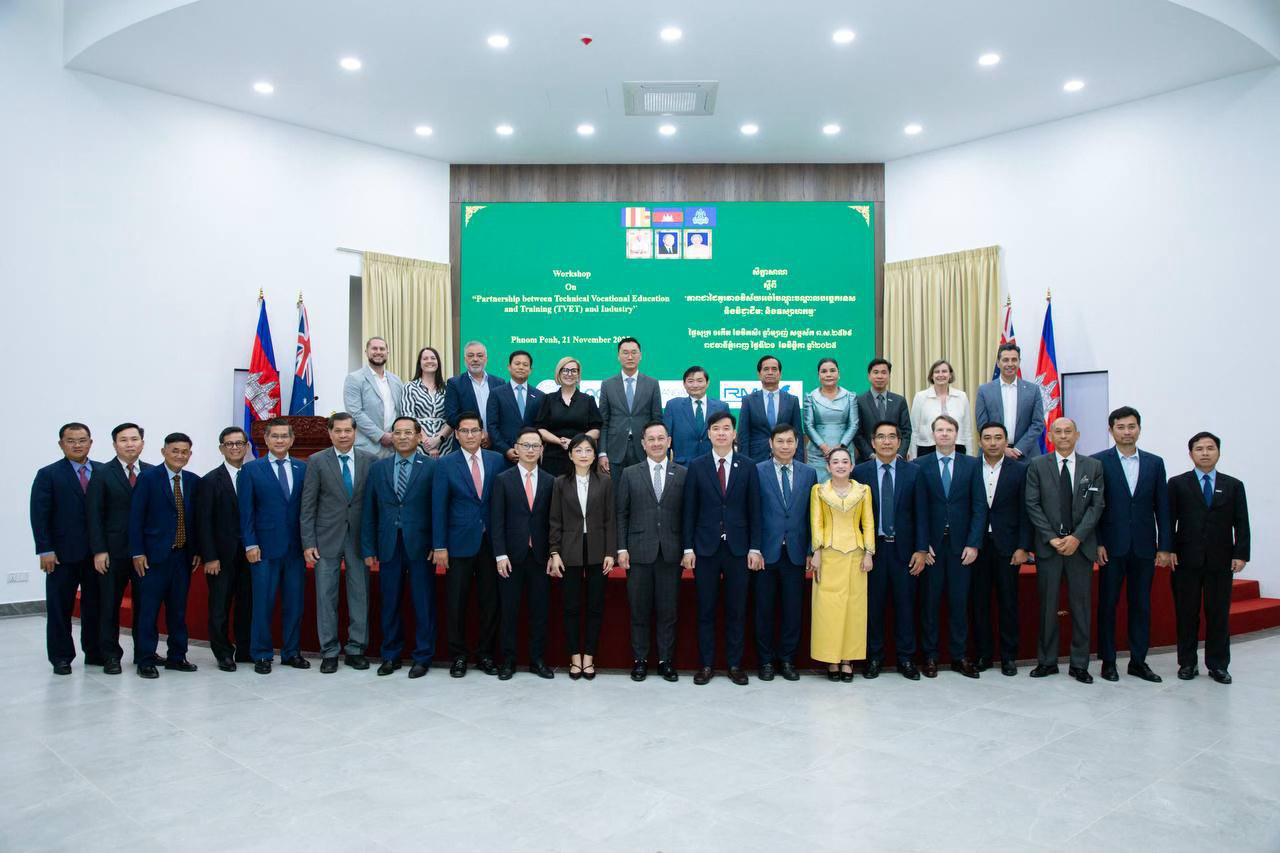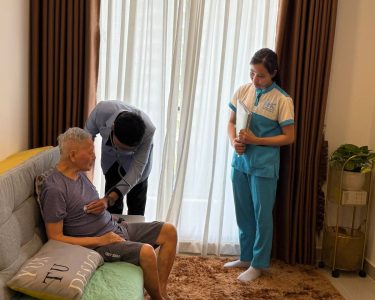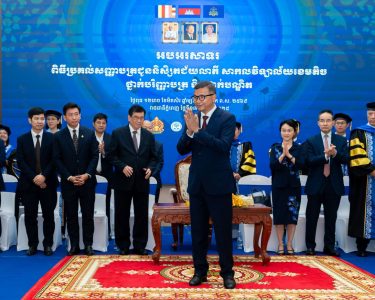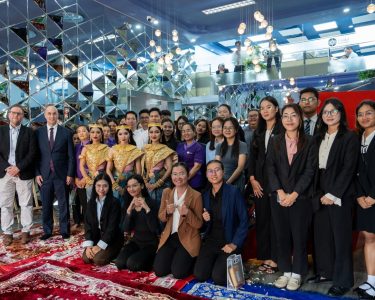By David VAN
Cambodia is standing at a historic crossroads—one where the future of its economy will be defined not by the quantity of workers it can supply, but by the quality of skills its people bring to industries that are rapidly transforming. In a global environment shaped by electric vehicles, electronics manufacturing, clean energy solutions, and advanced food processing, the country faces a simple truth:
Without a highly skilled workforce, Cambodia cannot fully seize the opportunities of tomorrow.
A joint delegation from RMA Cambodia and BKI Melbourne has been making courtesy calls to Cambodia’s top political leaders. These very high level engagements—initiated and coordinated by David VAN, the nominated CEO & Director of Strategic Partnerships of the Automotive Centre of Excellence Cambodia (ACE-C)—have carried one clear message:
TVET is not merely part of Cambodia’s human capital strategy.
It is the strategy for national competitiveness in the next decade.
A Public-Private Model Designed for Cambodia’s Future
The Automotive Centre of Excellence Cambodia (ACE-C) is a landmark partnership between three pillars:
- Ministry of Labor and Vocational Training (MLVT) – the public anchor for national skills development
- RMA Cambodia – industry co-sponsor providing top-tier equipment, technology, and real-sector alignment
- BKI Melbourne – a 150-year-old Australian TAFE institution bringing curriculum, instructor development, and global TVET expertise
Together, this partnership forms a People-Public-Private Partnership (PPPP) model that places Cambodian learners, industry readiness, and international standards at the center of the country’s industrial future.
Phase 1 begins with a world-class Automotive Centre of Excellence, addressing urgent needs in EV technology, automotive repair, diagnostics, and assembly. But this is only the beginning. The long-term plan is to expand into electronics, clean energy, agri-food processing, construction, and advanced manufacturing—the very sectors the Royal Government of Cambodia has identified as engines of economic diversification.
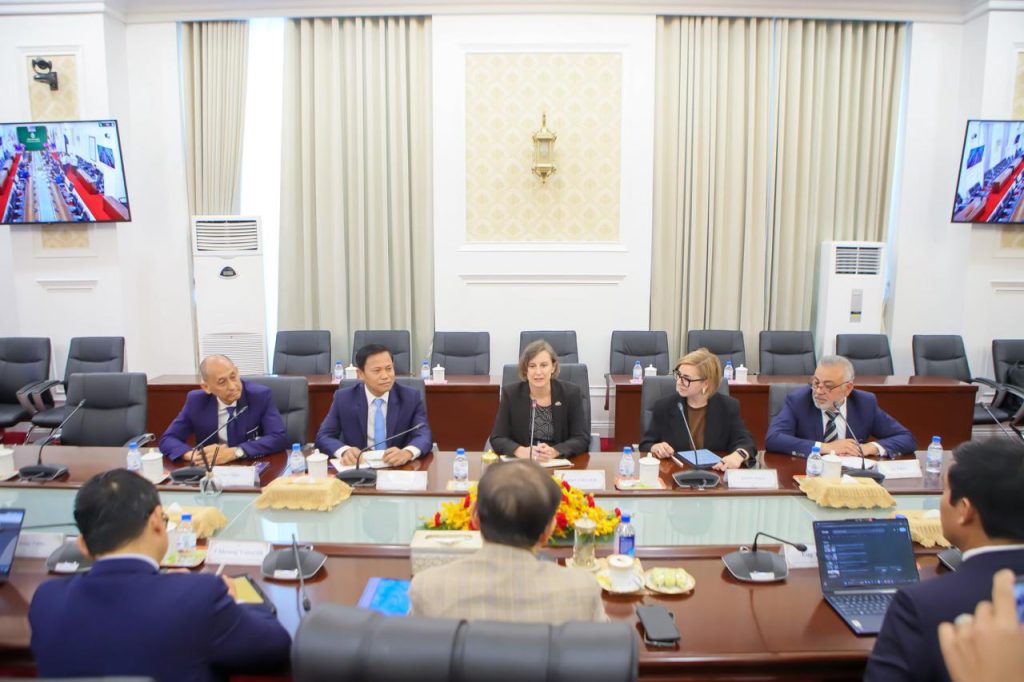
What Cambodia’s Top Leaders Said: A National Imperative for Skills Development
From the Council for the Development of Cambodia (CDC) to MISTI, MoEYS and the Office of the Council of Ministers, every ministry shared a unified view:
1. Cambodia’s economy is shifting fast—and urgently needs skilled labor.
Massive foreign investment is flowing into the country—electronics manufacturers, EV assemblers, food processors, and advanced manufacturing firms. Cambodia has become one of the only Asian countries with a modern, comprehensive trade agreement with the United States, further accelerating investor interest.
But these investments face a critical bottleneck: the shortage of skilled Cambodian technicians.
2. The country cannot rely on foreign labor if it aims to build national capability.
Some new investors still bring hundreds—even thousands—of their own workers. National leaders have called this unsustainable and unnecessary.
The message from DPM Sun Chanthol of CDC was crystal clear:
“We must prove that Cambodian workers can be trained to a world-class level.”
3. TVET must evolve to meet the needs of modern industries—not yesterday’s economy.
MISTI Minister Hem Vanndy highlighted that Cambodia cannot continue running dozens of TVET schools teaching the same generic subjects. The future requires specialized TVET institutions, each aligned to priority industries such as electronics, construction, clean energy, and biotechnology.
4. Youth engagement and public perception must change.
MoEYS Minister & DPM Hang Chuon Naron stressed that Cambodia suffers from a “missing middle”—too many university graduates, too few skilled technicians. Many parents still mistakenly think vocational training is a “second choice.”
But in modern economies, skilled tradespeople often earn more, enter the workforce faster, and gain more mobility.
5. Productivity is the next frontier.
The Permanent DPM in charge of the OCM (Office of the Council of Ministers) Vongsey Vissoth put the challenge plainly: Cambodia remains stuck in a “low-skill, low-wage, low-productivity equilibrium.” Breaking this cycle requires a bold public-private approach, and ACE-C is one of the practical tools to start delivering real results.
ACE-C: The New National Platform for Skills Transformation
The ACE-C delegation discussion of a tentative comprehensive plan did resonate with every ministry:
1. A National Training Hub for FDIs
With investor-specific training programs, ACE-C will become the skills engine behind every new factory entering Cambodia—EVs, electronics, machinery, and more.
2. A Talent Pipeline for Cambodian Youth
Through partnerships with MoEYS, thousands of high school students will be able to experience hands-on technical learning—sparking interest in real careers, not just degrees.
3. A Lifeline for Informal Workers
MISTI’s digital skills voucher program (nearly 250,000 workers registered) will allow ACE-C to deliver short, employable micro-credentials in EV basics, electronics assembly, welding, diagnostics, and productivity.
4. A Platform for Instructor Development
Cambodia’s shift to new technology requires new teachers. ACE-C and BKI Melbourne will certify “Master Technicians” as professional instructors—bringing real industry experience to the classroom.
5. A Catalyst for New Centers of Excellence
As ACE-C proves successful, its model could eventually be expanded to new industries:
- Electronics & semicon assembly
- Clean energy and solar systems
- Construction & smart infrastructure
- Food processing & cold chain
- Mechatronics & robotics
Each one will contribute to Cambodia’s long-term industrial competitiveness.
Why TVET Matters for Cambodia’s Economic Take-Off
The combined insights from all top government leaders point to one conclusion:
TVET is the bridge between investment and real national benefit.
FDIs bring technology, supply chains, and jobs.
But without skilled Cambodians, the value stays imported.
With TVET—modern, industry-driven, globally benchmarked—Cambodia can ensure:
- Higher wages
- Higher productivity
- Better jobs
- Stronger industries
- A competitive national economy
This is not an aspiration. It is within reach.
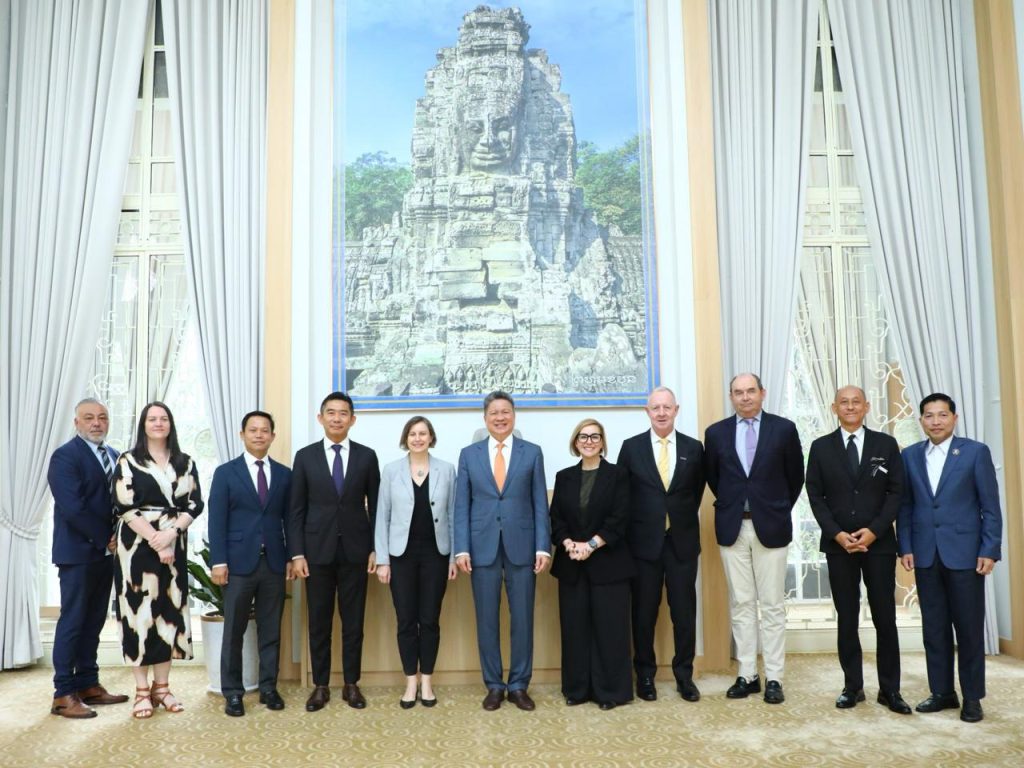
A Message to the Cambodian Public
The world is changing, and so is Cambodia. The next decade will not reward the countries that have the most workers—it will reward the countries that have the most skilled workers.
And this is where the Automotive Centre of Excellence Cambodia (ACE-C) timely steps in.
Through a deep partnership between the Royal Government, industry, and one of Australia’s oldest TVET institutions, ACE-C is placing Cambodia on the path of self-reliance, competitiveness, and skilled prosperity.
It is a model built on a simple belief:
Cambodians deserve world-class opportunities.
Cambodia deserves a world-class workforce. And ACE-C is here to help build and contribute to Cambodia’s future.
David VAN
CEO & Director Strategic Partnerships
ACE-C


